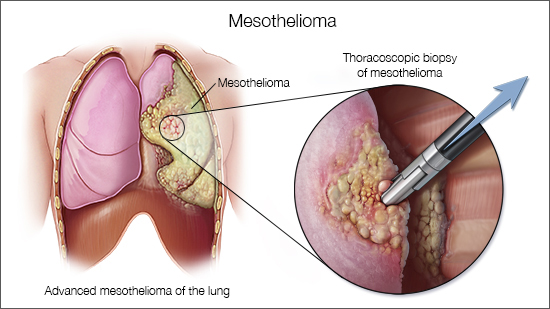 Asbestos and mesothelioma
Asbestos and mesothelioma
Mesothelioma is an aggressive and deadly form of cancer. Treatments are available, but a cure is not possible for many people with mesothelioma. Asbestos is the primary risk factor for mesothelioma. Reducing your exposure to asbestos — directly and secondhand — may lower your risk of mesothelioma. Learn more about the connection between asbestos and mesothelioma.
Choroid plexus carcinoma
Choroid plexus carcinoma is a rare, cancerous type of brain tumor that occurs mainly in children under 2. Treatment and prognosis depend on the tumor's size and location, whether it has spread, and your child's age and general health. Treatment often is surgery followed by chemotherapy, radiation therapy or both. Learn more about choroid plexus carcinoma.
Brain metastases
Brain metastases occur when cancer cells spread from their original site to the brain. Any cancer can spread to the brain, but the types most likely to cause brain metastases are lung, breast, colon, kidney and melanoma. Brain metastases occur in 10 to 30 percent of adults with cancer. Signs and symptoms of brain metastases include headache, sometimes with vomiting or nausea; mental changes, such as increasing difficulty with memory; seizures; and dizziness. Learn more about brain metastases and the treatment options that might be right for you.







